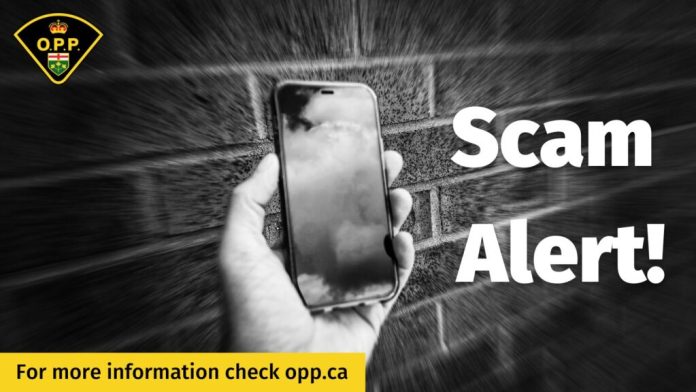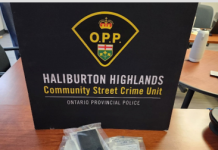The North Bay Detachment of the Ontario Provincial Police (OPP) is reminding the public to remain vigilant about scams. There are many schemes being used to defraud people and business. If you receive any unsolicited communication by any means asking for money to be given or that you won money, be cautious and suspicious.
Warning Signs – How to protect yourself
- If you receive a suspicious phone call claiming to be from a family member in an emergency situation, hang up the phone and contact them directly on the number you have in your contact list.
- If the caller claims to be a law enforcement official and asked you to pay a fine or bail, hang up and call your police directly
- Listen to that inner voice that is screaming at you: “This doesn’t sound right”.
- Be careful what you post online. Scammers can use details shared on social media platforms and dating sites for targeting purposes. Suspects can easily gather names and details about your loved ones
- Be suspicious of telephone calls that require you to immediately take action and request bail money for a family member in distress
- Be careful with caller ID numbers that look familiar. Scammers use technology to disguise the actual number they are calling from (spoof) and make it appear as a trusted phone number
- If you receive an email or text message claiming to be from a friend or loved one asking for money, make the outgoing call to the person by looking up the legitimate phone number you have for them in your contact list.
- Use unique and strong passwords for all social media and email accounts.
Some examples of types of scams;
- Emergency scams, sometimes called grandparent scams, involve fraudsters contacting seniors or family members claiming that their grandchild or a loved one was in an accident, charged with an offence such as a “DUI” and drug offences or, and in some cases, is ill with COVID-19. Fraudsters will claim that they are law enforcement officials, lawyers and even impersonate the grandchild/loved one. They’ll proceed to advise the victim that a payment for bail or fine is required immediately in order for the family member to avoid going to jail.
- Overpayment Scam – The scammer agrees to purchase something you are selling on-line. They send you a bank draft or cheque for more than your asking price. They ask you to deposit the draft or cheque and pay them back the difference. They are hoping you do this before your bank realizes the draft or cheque are fake.
- Crypto Scam – The scammer convinces you to open a crypto trading account where they will convince you to deposit a small amount of money. The scammer will then show a fake account indicating large gains on your initial investment and convince you to invest more. The scammer then advises you that you must pay fictional taxes or fees to access the funds. When the victim wants to withdraw the money, the scammer will often vanish. The scammers not only gain access to the victims deposited funds but also gains access to your mobile devices and computers to obtain your personal information as a result of downloading the trading app.
- Romance Scam – scammers target vulnerable people who may be lonely and gain trust by creating a fictitious relationship. After time, they request money be sent to them for various reasons; sickness in family and can’t afford medication, surgery, airline ticket so you can finally meet, housing/rent money, etc. That person you are communicating with is NOT who they say they are.
Remember, any legitimate agency will NEVER request a payment by wire transfer, online currency such as bitcoin, pre-paid credit cards or pre-paid gift cards such as Google Play, iTunes, Vanilla, etc. Scammers will ask to purchase large denomination gift cards as form of payment. Also, they will ask to send cash, but hidden inside pages of a book, then box the book and wrap it in an excessive amount of packing tape.
LEARN MORE
If you do suspect you have been a victim of a fraud, contact your local police detachment. For more information on how you can protect yourself from fraudulent activities, please visit the Canadian Anti-Fraud Centre (CAFC) website at www.antifraudcentre.ca/ or by telephone at 1-888-495-8501.








